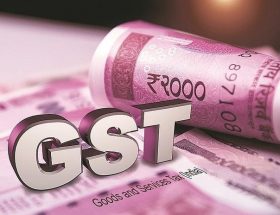
The Gambling Laws in India
In India, gambling is a part of the country’s history. Millions of Indians gamble every day, both illegally and legally. The development of online technology has set the country on the right path to becoming one of the biggest markets on the planet. Online casinos are becoming especially popular with the younger generations. This population has realised that there are more advantages and perks in gambling on online sites rather than in traditional casinos.
The only thing that is stopping the development and modernisation of gambling in India is the countries’ lack of industry regulations. It’s not even that they completely forbid gambling, it’s the fact that the laws are not easy to understand and confusing for most people. So, we decided to make things a little clearer for all of the gamblers out there.
Indian gambling laws jurisdiction
Under the Constitution of India from 1950, when it comes to government jurisdiction regarding gambling, there are two separate levels: the federal level and state level.
The Public Gambling Act from 1867 is a federal act from the colonial era that was applied only to British-controlled states. Today, this act is used by all of the states that do not have their own laws when it comes to regulating gambling on their territory. At the moment, Uttar Pradesh, Madhya Pradesh and Delhi are the three states that don’t have their laws and use this act.
The 1950 Constitution has made gambling a state-level issue in India, so today, most of the Indian states have their own regulations when it comes to gambling.

Land-based casinos
Only gambling in physical casinos (in land-based casinos or gambling houses) is illegal in most of India, this is because most of the laws regarding gambling were written before online casinos existed. The Act from 1867 forbids Indian citizens to own a gambling house or gamble inside one. However, there are still two Indian states that allow gambling in brick-and-mortar casinos: Sikkim and Goa.
Online gambling
When it comes to online gambling, things are a little bit different. Only six Indian states have laws regarding online casinos. Gambling is allowed on the territory of the following states: Meghalaya (both online games of skill and online games of chance), Sikkim (online and sports games), and Nagaland (online games of skill). The states that prohibit online gambling are Telangana, Andhra Pradesh and Tamilnadu. The rest of the states do not have any laws regarding online gambling, which means that you can play slots online without any restrictions.
Benefits of online gambling
And it seems that most Indians are using this loophole to their advantage, as online gambling is starting to flourish in India. It is becoming one of the favourite ways of entertainment in the country and for good reason. Players have realised that it is a lot better for their well-being and their funds to play on regulated online sites instead of playing at their illegal local gambling house and risking their lives and money. However, online casinos are not without flaws. And if you decide to play online, make sure that the casino you choose is licensed and regulated.
Conclusion
While gambling in brick-and-mortar casinos may be banned on the vast majority of Indian territory, when it comes to gambling online only a couple of states forbid it. This has made gambling online the preferred gambling option for Indian players.









